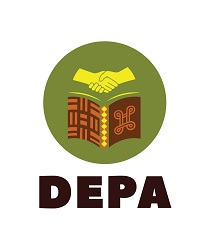
Stakeholders mapping through a community workshop
Gender-based violence (GBV) is a major public health issue due to its short- and long-term adverse effects on women's health. It can have detrimental effects on health and education, including depression, sexually transmitted infections, substance misuse, low school achievement, and increased school dropout rate. Schools rarely provide education on how to reduce gender violence and little is known about how physical and emotional violence impact female school students in Harar, Eastern Ethiopia..
The DEPA-GBVH team organised two workshops for key stakeholders together with the Family Guidance Association of Ethiopia (FGAE) to explore local strategies to reduce gender-based violence. The three-day workshops aimed to build relationships with local government officials and secondary school officials to ensure that we gain their support to do the other activities and distribute the educational materials through the appropriate channels. Moreover, we wanted to share knowledge on gender relations and gender-based violence with the participants, about which will help them understand the scale of the problem and prepare them for the project activities. The workshops were also used to consider meanings of peace and its relationship to health and wellbeing through local conceptualisations and experiences rather than through Western hegemonical discourses of what peace is and should be.
The training methodology was participatory to allow free discussion. It included methods such as brainstorming, question and answer, lecture, semi-lecture, group discussion, presentation and role-playing with selected case studies. Most of the presentations and discussions were supported by case studies to enable participants to appreciate practical problems and issues as well as analyze situations and reach decisions. Facilitators used the new 2016 revised training guideline developed by Minister of Health of the Federal Democratic Republic of Ethiopia.
Way forward
The workshop participants recommended some ways forward: First, the government sector should work closely with secondary schools to reduce gender violence. Second, law enforcement for GBV survivors. Finally, they highlighted that GBV survivors should get psychosocial support and better health care from local health systems.
The workshop participants also identified the following key points:
-
GBV is a serious, life-threatening issue that requires intervention.
-
Well-coordinated, integrated multispectral, inter-organizational, interdisciplinary action is needed and they all are ready to contribute their effort.
-
Provide appropriate, compassionate services to survivors via working with close engagement were also stated.
-
Legal support, rehabilitation centers, safe houses for GBV survivors should be present in Harari region, Ethiopia.
-
Participatory art methods such as theatre and photo voices are appreciated to teach the GBV issues at the secondary schools. Furthermore, developing education materials is seen as a good teaching strategy.
Ketema Begna
DEPA, Ethiopia

